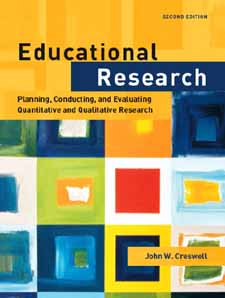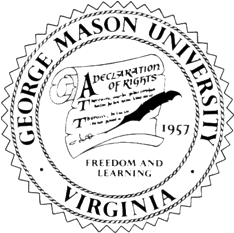



EDUC
800
Ways
of Knowing
Dr.
Anastasia Samaras
Spring 2006
 
 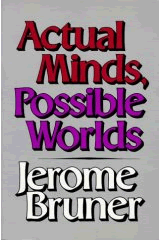
|
Ways
of Knowing class was quite a challenge. However, as I realize now, my biggest problem was the extremely constructivists environment rather than the course content. I most definitely learned to be more tolerant and open to unusual for me ways of knowing (e.g., feminist ways of knowing). We had several collaborative and creative projects in this class. For one of them we, as a group, had to develop and discuss multiple perspectives in response to a book or a movie. Our group chose the movie "I Am Sam." I was quite cynical at the beginning thinking that there can be only one perspective on that movie. I could not imagine how differently various people perceived the film. As a result we directed, filmed, and edited our own movie where we discuss "I Am Sam" from the point of views of a teacher, psychologist, parent, cynical critic, pregnant teen, and an advocate for the rights of people with disabilities (that was me). This project was a lot of fun and very informative. I think that was the first time I truly realized that there ARE different ways of knowing and all of us come to know differently depending on our background, education, history, etc. (pretty insensitive for somebody from another country, but that was truly the first time I thought about it).
As one of the big projects (Knowing Project) we were suppose to choose a new to us way of knowing, explore it though the literature review, and conduct a mini-research project. My classmate and I decided to collaboratively explore self-study as a way of knowing and explore how we came to select our dissertation topics/areas of concentration. After this project I feel very excited about self-study as a (supplementary) research area and look forward to applying it to my research projects. The Reknowing Paper summarized how we first framed and then reframed our thinking and understanding of ways of knowing throughout the semester. For this assignment I was able to sort out all new ways of knowing I learned about and how I could apply them to my research interests.
Overall, with all the complains I had about this course, it was very useful in terms of developing myself as a professional and a person.
Back
to Top
|
EDUC
802
Leadership
Seminar
Dr.
Gary Galluzzo
Fall 2005
 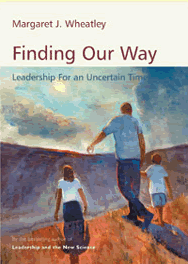
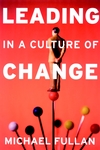 
 
|
Leadership
class was one of the best classes I took so far. Dr. Galluzzo has
taught me to look at leadership from multiple perspectives. Over
the semester I have learned from 5 different authors about different
approaches to leadership from Machiavellian hierarchy to Wheatley’s
flat organizations. It was definitely a valuable experience because,
due to my cultural background, the only leadership I knew before
taking this class was the coercive, authoritarian one. So it was
really helpful to learn about other existing views.
Right from the beginning we have learned about conceptual analysis
from John Wilson’s Thinking with Concepts. First I could
not understand why we were reading that because it did not
necessarily touch on leaders’, their attributes or leadership
in general. Then, we had a chance to apply conceptual analysis in writing
two essays. It
was an amazing learning experience. However, it was also the first
time my language and cultural background interfered with my thinking
in a major way. In the Leadership
and Conceptual Analysis essay I was
trying to analyze if “knowledge
is a lesser requirement for leading others in comparison to power and
authority” and that was when I faced a problem because “authority” and “power” are
synonyms meaning absolutely the same thing in Russian language. Through
a lot of thinking and speculating about model, contrary, and borderline
cases, I have grown tremendously and got close to achieving clarity
of thought and communication.
I truly enjoyed reading The Prince by Machiavelli. Regardless
of his sometimes-cruel ideas on leadership, I am truly amazed by how
many attributes of the leader Machiavelli described in XVI century
are still essential these days. Gardner and Fullan described familiar,
comfortable to my ideas leadership. It was a great pleasure to learn
about the life and pathways of 11 outstanding leaders in different
domains in Gardner’s Leading Minds. Additionally, I
found interesting and promising the possibility of combining direct
and indirect leadership in the effective manner. The reason that’s
intriguing is because I really hope to provide indirect leadership
in this country through my work and expertise and hopefully to engage
more in direct leadership in Russia trying to change the attitudes
of general population towards people with disabilities.
I really had a hard time understanding and tolerating Senge’s
and Wheatley’s flat approach to leadership where the leader does
not use control but let people lead themselves. For a long time I have
thought
that
flat organization is utopia, a wish that is unreasonable and unreal.
Although I still find it hard to tolerate some of their points, the
main lesson I have learned is that flat organization does not imply
that there are no leaders. It just suggests leaders having different
roles empowering people.
Over the four months I have certainly developed new skills and knowledge
in the area of leadership. Back in Russia leadership is not something
you study at school. So I guess I have always seen leadership as something
you are born with; you either have it or you do not. The biggest thing
I have learned here is that you can definitely educate and train yourself
in being a leader and/or being a better leader if you are already one.
As a result, this realization determines my place at the very beginning
of the process of becoming a leader having plenty of material ahead
of me to learn and practice. I summarize those essential attributes
of the leader, explain the reasons they are important, and reflect
on where I am in the process of becoming a leader and what I still
have to learn in the final paper "The
Most Essential Attributes of a Leader".
That paper represents the attempt to find convergences between
all 5 different approaches to leadership we have learned in
this class.
Back
to Top |
EDUC
805
Doctoral Seminar
Dr.
Mark Goor
Fall
2005
Dr.
Anastasia Samaras
Spring 2006 |
The
Doctoral Seminar was truly fun. We were introduced to several faculty
members in the Graduate School of Education, to their personal journeys,
their research interests and work. The chance to see all different
types of research and studies going on at George Mason was breathtaking.
I am sincerely glad I have had such opportunity.
All the presentations we have heard in this class have impacted my
way of thinking. Some of them were more interesting and intriguing
to me, but all of them were valuable. I was able to take something
away from each presentation that certainly enriched me and enhanced
my knowledge.
I guess the biggest surprise and relief for me has been the
fact that a dissertation can be just a replication and/or extension
of the existing
research. I always thought that I would have "to invent the wheel".
It maybe very frustrating because a lot of research has already been
done
and it would be almost impossible to come up with something new. Now
I am looking at existing research in a different way asking myself
questions about how it could have been replicated or extended. Since
I have started doing that I came up with some great ideas. The prospect
of replicating and/or extending existing research is the relief and
the force that moves me through the program because now I think I can
actually make it.
I had a chance to see great passion and devotion to their work
expressed by many faculty members, I have learned more about
different research
methods and writing skills from professors’ first hand experiences,
I have found several topics that I now seriously consider for my dissertation.
Overall, it was a wonderful opportunity that introduced me to endless
possibilities in this new for me university.
The second part of the Doctoral Seminar class was as exciting as the
first one. I had a chance to meet more professors, learn about more
their research interests and numerous studies taking place at GMU.
Every presentation touched my research interests in some way. This was a great opportunity for internal networking!
Back
to Top
|

|
EDRS
810
Problems and Methods in Education Research
Dr.
Margo Mastropieri
Spring 2006
|
What a wonderful way to begin learning about research. Dr. Mastropieri was absolutely fabulous teaching us the basics of educational research without making us feel intimidating and panicked. This was probably the class I learned from the most so far. What I loved the most about it was that Dr. Mastropieri was very fair and equal to all areas of research. We learned about both quantitative and qualitative research as well as touched on single-subject research designs. This course provided me with solid basics of research that I look forward to expand through my other research classes.
The main focus of this class was on the research methodology and its description in any research paper. We have prepared Quantitative Research Methodology Section and Qualitative Research Methodology Section that I used for my real research studies and publications. Through this experience we learned and practiced to focus on the main elements that make any research study stronger. In addition, we prepared the Human Subject Research Application, which allowed me to go through the process and receive permission for the study with real subjects. It was in all the ways the invaluable experience because now I feel knowledgeable about the application and the submission processes that proved to be very handy for my other projects.
Back
to Top |
EDRS
811
Quantitative Methods in Educational Research
Dr.
Dimiter Dimitrov
Fall 2006
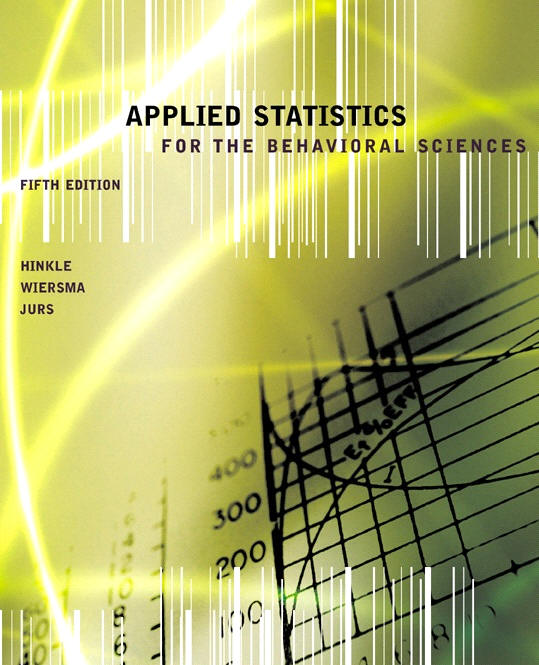
|
I have really enjoyed this class! I felt comfortable with the statistics and the way this class was taught. Dr. Dimitrov is an outstanding professor, who makes hardcore numbers sound so easy! I was very fortunate to take this class with him. In addition, this course has been taught in a very familiar to me "lecture" format. I have learned about the major statistical tests in relative detail. I have learned about t-test, ANOVA, correlation, simple and multiple regression, as well as chi-square tests. It was an amazing feeling to be able to understand all those "big" numbers and make sense of them. I remember my first experience with a quantitative research and a guess game about which test to choose. After this class I know what test to use in which situations. Furthermore, I have learned to make connections between research questions, type of data necessary to answer those questions, statistical tests used to analyze it, and how to interpret the results. In addition, I had an opportunity to play with SPSS program and learn how to enter and analyze data in this program, as well as how to interpret the SPSS printouts.
Besides two in-class exams, we were responsible for applying all new knowledge and skills to a real research study. I have conducted a survey study "Implementation of Assistive Technology with Students with High-incidence Disabilities: Current Status and Training Needs." I have used the real data I collected earlier. This paper is a first draft of the manuscript that I am hoping to publish. Although I do not really need to take any more research classes, I am seriously considering taking advances quantitative class.
Back
to Top
|
EDRS
812
Qualitative Methods in Education Research
Dr.
Earle Reybold
Spring 2007
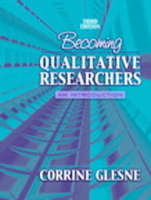 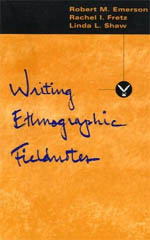
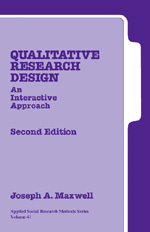 
|
This was probably the most difficult class I had to take in the doctorate program. The reason for that is simple - I am NOT a qualitative researcher. Throughout this study I tried very hard to embody the nature of qualitative research and employ an inductive research strategy. We had to conduct a pilot study and critique the process afterwards. I designed and conducted a generic qualitative study named "The Process of Video Integration with Students with Intellectual Disabilities: Experiences of Three Teachers." If I had a chance to start at the beginning and do the study all over again, I would do everything differently. I would employ a different design, use different methods, and choose different participants. It sounds cliche but qualitative research is much more rigorous than I have ever expected. In some instances I found it to be more rigorous than quantitative studies. It was very surprising!
Obviously, qualitative research requires well-developed writing skills. This was difficult for me. It is crucial to be concise yet very detailed. In addition, I was paranoid with the idea that people will rely only on the words that I choose to include. I realize you need to be able to write in quantitative research as well, however, I felt more pressure in this experience as there are no numbers for people to refer to in case the description is not perfect. In the first chapter of her book, Glesne (2006) describes a student who had a difficult time with ambiguity of qualitative research complaining about the amount of new questions arisen from her study. I can confess that I share her feelings. I appreciate the experience of learning qualitative research. However, I still feel uncomfortable with the emergent nature of this type of research. I am not as tolerant of ambiguity as qualitative research requires, and the requirement of being sensitive to the context and variables sincerely makes me nervous. I feel like my focus on details prevents me from seeing a big picture.
This was an extremely valuable exercise as it helped me to learn about the qualitative research process, conducting and analyzing interviews, as well as about myself. I found peace with the notion that there is no right or wrong way to conduct qualitative research. With that being said, I look forward to reading and learning more about this process, so I can do it WELL!
Back
to Top
|
EDRS
823
Single Subject/Case Study Design
Dr.
Michael Behrmann
Fall 2006
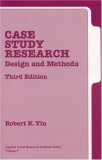 
 
|
I just loved this class! I think I found myself as a researcher. I really enjoy and feel very comfortable with a single-subject research design. In addition, if I continue to work in special education, this would be the most feasible research design for my future studies. Throughout the course we were responsible for designing and implementing a real single-subject research study. My study was on "Word Prediction Software for Students with Writing Difficulties."
This hands-on project gave me an opportunity to apply the acquired knowledge and skills in single subject research. This was a wonderful chance to experience how things are different in practice than they are in books. First of all, now I have a better understanding of single subject research, so I can design a new better-developed study with less number of limitations. However, I have also learned that sometimes real life circumstances impose specific requirements for less effective research designs. As for the visual analysis, this project made me realize why it is important to have as many data points as possible. I had a great variability within and between phases that alters my results.
Single subject design has a very flexible nature that can change based on the data. If I had a chance to do this study again and had more time in the camp, I would prefer to wait for the stable baseline, establishing the behavior pattern. I really enjoyed calculating percent of non-overlapping data. From my point of you, it is a very reliable procedure and it really can demonstrate the effectiveness or lack of it of the intervention on target behaviors. While it was quite challenging to implement randomization tests, I look forward to conducting another study when I begin with designing the study to meet the strict requirements of such tests. Nonetheless, I was able to find a design applicable for my study and obtain statistically values for all my variables across three programs per each participant. I can see how randomization tests can enhance findings of a single subject design study. It was interesting to see that sometimes my mean line would demonstrate one result (mostly because of outliers) but randomization tests reveal the opposite one. Overall, it was an excellent experience. I am looking forward to compressing this largely descriptive analysis to a publishable article and conducting more single subject research studies
Back
to Top
|

|
EDIT
705
Instructional
Technology
Mike
Coffey
Fall 2005
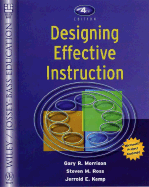
|
This
introduction to Instructional Design was a very difficult
course for me. The fact that the majority of my classmates were currently
working as instructional designers was also a challenge. It was the
first time I have heard about instructional design and However, after
completing I can see how important and valuable it was for
my future
career.
It
is
one
of
those courses
that you want to be over as soon as possible but then, amazingly,
find
yourself
quoting and applying what you have learned almost daily.
We
studied in details all the
elements
of the
instructional design, ADDIE model and demonstrated
application of that knowledge on practice. Over the time of the
course we were responsible for choosing any topic/problem that could
be
solved with the training and completing two metatarsi.
Just like in real world all the assignments were collaborative projects
and I was fortunate to have another graduate student in that class
who was also very interested in the
area of assistive technology. Our identified problem was that teachers,
especially in rural area school do not know about AT, specifically
about different switches available. More than that they lack
knowledge
and skills on how to choose an appropriate switch based on students'
needs. In addition, counties removed from the large cities do not
even have the AT coordinators/specialists, so the selection
and use of AT depends solely on special education teachers. We
have conducted needs assessment and surveyed teachers in Frederick
County. The results supported our problem statement and the willingness
of teachers to be trained.
Just
like in real world, we
were prepared the Design Document (PDF
file only) where we stated
the problem; proved that it existed through needs assessment;
developed the effective training solution considering
all key elements of
the instructional design process: learner characteristics,
subject content,
instructional objectives and strategies, and evaluation instruments.
After that based on the information from the design document
we developed a segment of prototype of the instructional
module.
In
our case, it was the part of the training with the instruction
on how to consider student's abilities and reliable body parts
in order to find the perfectly fitting switch. We have developed Training Manual (PDF file only) for that module following the prescriptions described in the
design document. We also designed the prototype of the Job Aid
(PDF file
only), something that our learners could take home and use
in the switch selection process.
Over all it was an incredible amount of work but it made me
realize how instructional design is important for developing
my own courses. Curriculum development is an
essential part of higher education and training modules
designed with the instructional
design in mind can be so much more effective.
Back
to Top |
EDIT
772
Electronic Portfolio
Dr.
William Warrick
Fall
2005
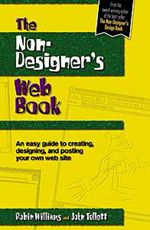
|
This
was a fun and exciting class. It was really helpful in two aspects.
First of all, it finally clarified the purpose and the content of
the PhD
portfolio. Each section was discussed in great details including
the due dates. It certainly decreased the level of anxiety
and gave me the opportunity to look at my work and classes in prospective.
Second,
I learned the basics of the web design and different elements of
it that are important to consider when creating a web-based product.
I was happy to learn the basics of the Dreamweaver program. Prior
to this class I had an experience of hand coding the web site (the
English version of my Russian University) and I was dreading
the HTML coding again. But I was pleasantly surprised when the
Dreamweaver
did all the work for me.
This
class also game me the opportunity and the time to start developing
my electronic portfolio. Although it was only my first semester in
the program, I was able to create several pages.
That certainly gave me a good start with the process.
I
believe that in this era of computerization it is very important
to know at least the basic of web design. I'm sure that I will apply
all the knowledge and skills from this class when designing online
classes and training modules in the future.
Back
to Top
|
EDSE
649
Assistive Technology Assessment
Cindy
George
Spring
2006 |
In this assessment class I had a chance to remember why I decided to pursue education in assistive technology. After learning about different AT assessments and required procedures (very valuable knowledge that will be used greatly in my future career), I had a chance to help real people. First, we had a group project when my classmate Angie and I met and assessed Mike's abilities and needs. Michael suffered from traumatic brain injury after a motorcycle accident couple years ago. That left him wheelchair bound and unable to express himself. We were able to find the way to connect his Vanguard communication device so he would use it both for speaking and typing on the computer. We also trailed and found a mouse substitute for Mike (because of ataxia it is hard for him to manipulate the regular mouse). We had to write everything up in our Team Report.
Then, through social services providers we had a chance to work with a client individually. I was very lucky to be introduced to Dr. Dennis, extremely intelligent and highly educated man (PhD in Biochemistry), who had a stroke several years ago that resulted in a partial paralysis of his right side and inability to read and write. Working with Dr. Dennis made everything I learned real. After more than two months of trials we found an alternative (one handed) keyboard for him and a word prediction program to help him with spelling. In addition, text-to-speech program was offered to Dr. Dennis for reading electronic materials. Details can be found in the Assistive Technology Assessment. At the end, knowing that with these tools Dr. Dennis was able to contact his family for the first time in more than two years was the biggest reward. Making difference in person's life with the help of AT is the real and only purpose I am in this program!
Back
to Top
|
EDUC 897
Independent Study: Developing Online AT Program
Cindy George
Spring
2006 |
Developing an online program in assistive technology is quite a challenge. That is because the most important component of any technology program is the hands-on activities. In this course I had a chance to learn Breeze web communication system in depth. We designed Breeze classroom materials and outlines through detailed task analysis. That was the first time I analyzed the course lecture in details allowing me to realize the important features/components of a successful lesson plan (distance or not). We collected information from students and instructors in the AT programs summarizing the positive and negative aspects of the AT program. I believe that will help me in my future career if I ever consider developing and/or refining an existing AT program. I am looking forward to continue brainstorming and trying different online options in order to find the most suitable solution for the AT program. If that happens, that will be a discovery. However, even if it doesn't, the experience will still be invaluable.
Back
to Top |
EDSE/EDIT 526
Web Accessibility and Design
Paul Bohman
Summer
2006

|
I took the online version of web accessibility class and was very glad I did so. Besides all extremely important knowledge in the area of web accessibility, I had an opportunity to see that it was possible to make online (mostly written) materials interesting and exciting. Paul Bohman is now my etalon of writing. I could not stop reading all those technical documents that were suppose to be boring.
In terms of web accessibility, this class was full of practical applications of all the concepts of web accessibility. It made it real when we had to go and evaluate an existing website on how accessible it is for people with different disabilities. I chose www.whitehouse.gov and found it generally accessible (the details can be found in the Web Evaluation Document). Moreover, that prepared us for designing our own fully accessible website. I have begun developing Assistive Technology Resource Box (opens in the same window) where I plan to collect useful information and links in different areas of assistive technology. As of right now, my resource box includes just few links in the areas of AT for learning and sensory disabilities, computer access, and alternative and augmentative communication.
I know for sure that I will be able to use everything I have learned in this class in my future career. Designing an accessible website is much easier than trying to make an existing one accessible. In addition, I became more familiar and comfortable with the general website design, that is always a nice addition to any set of skills.
Back
to Top |
EDSE/EDIT 524
Assisi Technology for Individuals with Learning Disabilities
Dr. Cheryl Temple
Summer
2006 |
Assistive technology for students with learning disabilities is my biggest research interest, so I could not wait to take this class. Although I knew a majority of discussed technologies, especially in the area of reading and writing, I was very excited to learn more about math and other areas of academia. Overall, it was a nice opportunity to learn about many practical aspects of using those programs that I was already aware of.
I enjoyed the practicum, when I was engaged into a real project working with a child with learning disabilities trialing different technologies with him. In addition, as a group project we came up with an Electronic Resource Notebook that included information on 1o low-tech and 10 software programs in reading, writing, math, and content areas for students with learning disabilities.
It was a very positive experience. In addition, I always enjoy taking classes taught by different professors because everybody else's approach is different and I am excited to try several tricks and share all the numerous resources in AT classes that I teach.
Back
to Top |
EDUC
994
Advanced Internship in Education: CompuWrite Camp
Dr. Michael Behrmann
Summer
2006
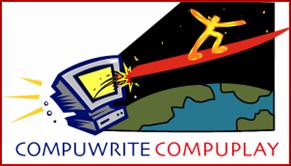
|
The first time I heard about CompuWrite Camp was way before I even applied to the PhD program. I was very excited about the opportunity to work with students with high-incidence disabilities again. My role at CompuWrite Camp was the university supervisor and did not assume working with children directly. I was in charge of training and supervising university interns who worked with students. For the training I developed an Internship Manual and conducted the one-day long training session. It was an excellent experience as I practiced both managing and teaching skills. Throughout the internship I observed interns during their teaching, discussed their progress with the cooperating teacher, and completed an enormous amount of paper work in the form of various reports. Thinking back to my internship and my university supervisor, I never thought it would be so hard. Even now I would probably change the way I dealt with some interns, so I was glad I had this experience at the beginning of my career. I feel prepared now to this role of a leader that incorporates many elements of politics and diplomacy.
Although my job was to conduct just several observations, I chose to be at CompuWrite all day, every day. I was conducting a research study with 5 out of total 13 students examining their use of three different word prediction programs. Just like above, I would probably design my study completely different now, but "you live, you learn." I didn't analyze the data from the study yet but I had a chance to interact with students, the experience that cannot be compared to anything else.
Overall, CompuWrite Camp internship allowed me to grow as a leader, researcher, and a person. It was a wonderful experience that enriched all aspect of my professional life.
Back
to Top
|
EDSE 528
Low-Tech Assistive Technology
Cynthia Feist
Fall
2006 |
I was very excited to take this class because I believe low-tech assistive technology devices and strategies is something I will be able to take with me home, to Russia. There are many sophisticated AT options that my Russian colleagues cannot afford. However, there are also many low-tech ideas that they and their students can benefit from. I have enjoyed this class, although I thought it was too short. There is one thing I have learned about myself - I cannot solder! It was a pure torture and the biggest excitement at the same time. Throughout the course we have learned about low-tech ideas for daily living, positioning and mobility, computer access, communication, and academic strategies. For the final project I have designed and created a low-tech device, a car seat belt extender, for my friend. The whole class was full of great hands-on experiences.
Back
to Top
|
EDIT 611
Innovations in Distance Learning
Dr. Raul Zaritsky
Spring
2007
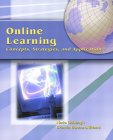
|
While I took this class, I was also helping with the technological aspect of SD Consortium. Five universities and several at-home students were connected for synchronous distance classes. Having hands-on experience was great! However, I cannot say the same about the class. Unfortunately, it was a little bit unorganized for my taste, which prevented me from getting as much out of it as I had hoped for. This class was taught in a synchronous format over Acrobat Connect. I was somewhat familiar with the Connect, so I ended up helping all students in our class to use it. For that reason, I have decided to volunteer to the teaching assistant position available in class. Unfortunately, that was not one of my best decisions. The class was comprised of only students' presentations, and while they were very interesting and informative, I wish we spent time on the basics and foundations of innovations in distance learning.
Back
to Top
|
EDUC 897
Developing Universal Design Video Program
Dr. Michael Behrmann
Spring
2007
|
I truly tried to move forward with the development of the program. We have spent plenty of time brainstorming but due to several constrains the program is yet to be developed. I think the most valuable lesson I learned from this experience is the amount of time it takes to conceptualize a product. I unrealistically expected to be able to develop a program in one semester. I am not giving up the idea yet, but now I know that it is crucial to plan wisely when attempting an endeavor like that.
Back
to Top
|

|
(transfer
credits from the Master's)
SPED
6010
Issues,
Trends and Research in Special Education
Fall 2001
SPED
6020
Curriculum Development and Program Planning in Special Education for
Students with Mild/Moderate Disabilities
Spring 2002
SPED
6022
Instructing Students with Learning Disabilities
Spring 2002 |
These
courses were transferred from my Master's Program in Learning Disabilities
from East Carolina University. They were the core content courses
in my specialization.
SPED
6010 a research class where we discussed several
issues and trends in special education that were on target at that
time.
The topics like legislation and litigation, identification, eligibility,
inclusion, and placement received special attention in the class.
It became even more relevant to my major when we had to
complete an extensive literature review on the selective topic.
I chose to do the overview of Assistive Technology for Students with
Learning Disabilities. So the acquisition of knowledge and understanding
of research methods focused on the area of my interest and specialization.
After that class I pursued that topic and research further
in
the
program
for my
major project
development.
You
can tell from the title that SPED 6020 was a practical course. It
taught me many essential skills that "saved my life" when
I actually
started
working
in a school
system. I learned about North Carolina Standard Course of Study (NCSCS),
IEPs and the ways to complete them. We had plenty of practiced
on lesson and unit planning with the focus on NCSCS competencies
and
adapting
the content and the instruction to the needs of students with mild
disabilities (obviously, my focus was on students with learning disabilities.)
In this class I created my first management plan and an electronic
portfolio for the real student with learning disabilities (that was
actually the first time I worked in the classroom with a
real student and not just observed. I still remember how scared I
was the first day!)
SPED
6022 was another great practical course that focused specifically
on providing instruction to students with learning disabilities.
Emphasis
was placed on applying research literature to acquire and refine
best practices in educating students with learning disabilities.
I
feel like these are the main courses that truly prepared me for teaching
in the classroom. I went back to class materials several times during
my first year of teaching. In addition, the fact that in each of
these classes I could choose a topic that I liked to research allowed
me to add the technology component to my program. In each class I
was looking at assistive technology (specifically for writing) for
students with learning disabilities and continued to extend and refine
my research that resulted in the development of the interactive CD-Rom
"Assistive Technology for Students with Learning Disabilities" in
two languages: English and Russian. The CD was disseminated
among several schools in the district for introducing LD teaching
to the AT for writing. It was also employed by several universities
in Russia for educating their perspective special education teachers
on what is being done in the world. I'm very proud of that product.
Back
to Top |
EDSE 841
Intervention Research in Special Education
Dr. Margo Mastropieri
Summer
2006 |
This was one of my favorite classes in the program. Dr. Mastropieri has an amazing talent to make research sound easy and doable. In this class, we have learned to synthesize original intervention studies in research meta-analysis. It was really fun to create my own coding instrument, code articles, determine the effect sizes and PND (percent of non-overlapping data) for each study, analyze results in SPSS, and thus synthesize existing research. I find meta-analysis to be a very useful technique that has a lot of potential to empirically summarize literature, so readers can get an overall idea about the intervention. In addition, we have learned to prepare proposals for national conference and publications.
For the purposes of this class, I have studied the efficacy of video instruction. My study "Efficacy of Video Instruction Meta-Analysis: Preliminary Findings" quantitatively synthesized the efficacy of video instruction presented in various formats as an intervention tool for teaching academic, functional, and behavioral skills to school-aged children with and without disabilities. I had fifty one studies, including 24 with group design and 25 that employed single subject research, that were integrated through a meta-analysis technique. I practiced calculating effect sizes for the group design studies and determine PNDs for the single-subject research studies. This paper offers only preliminary findings. I am yet to finish the in-depth analysis of the data.
Back
to Top
|

Last Updated: 5/1/07
Contact: 
|

